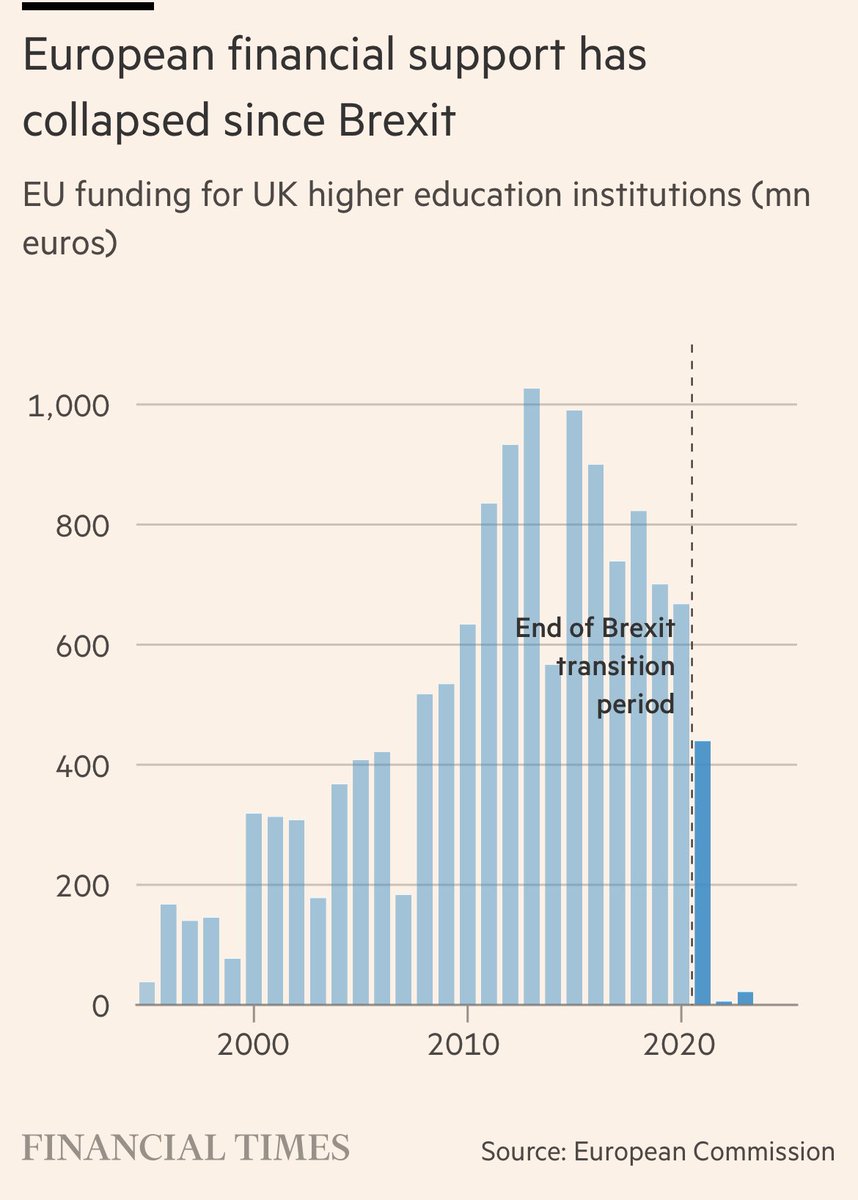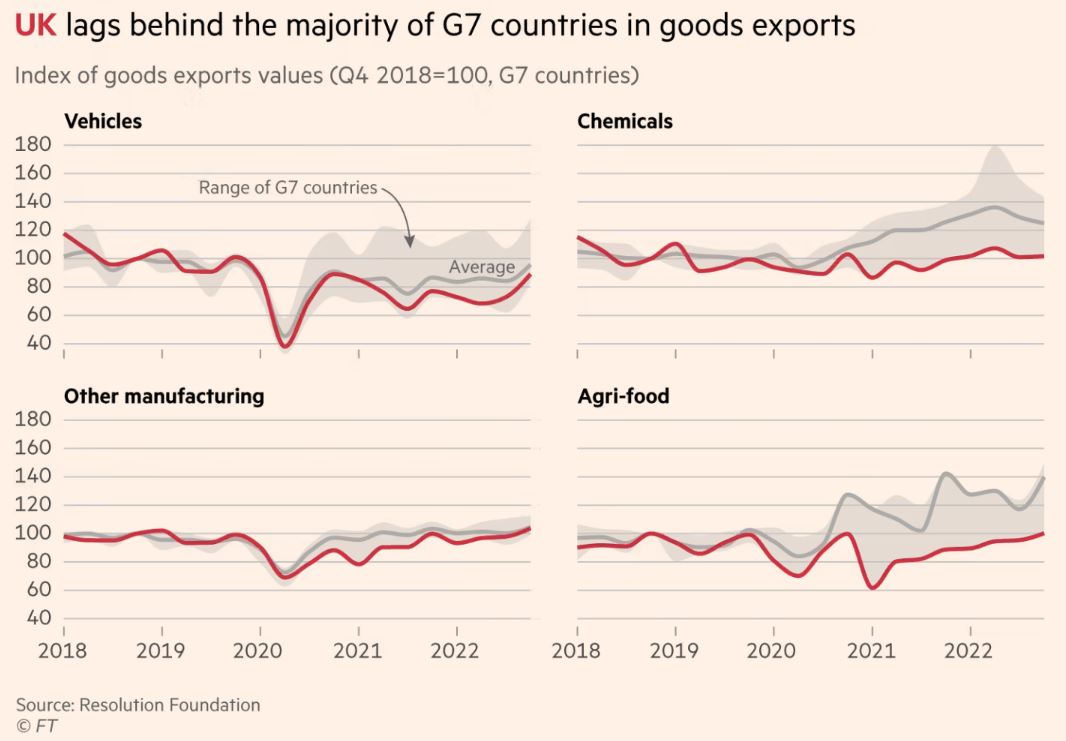So. End of another long #brexit trade negotiations week...which ended in more stalemate over fish and LPF/subsidies...but it is subsidies where it's really fundamentally stuck, it seems. And that's important, because the 'state aid' row is really a proxy #Brexit as a whole 1/
No surprises that we're still stuck at the "no breakthoughs, but no breakdown" equilibrium...but the meeting with @BorisJohnson and @vonderleyen will be critical. The UK have wanted to escalate beyond @MichelBarnier, the question is what they'll find now they've got there. /2
@BorisJohnson @vonderleyen @MichelBarnier In a nutshell this comes down to how many strings must come attached to a 'zero tariff, zero quota' Free Trade Agreement - the UK says the single market is going behind a customs barrier, so the EU really can't demand these kind of LPF strings./3
@BorisJohnson @vonderleyen @MichelBarnier But Angela Merkel sounded pretty chilly in Brussels today - tl;dr the EU won't make short term decisions that imperil the long-term integrity of the EU single market. /4
https://twitter.com/StefanieBolzen/status/1311996117878530049?s=20
@BorisJohnson @vonderleyen @MichelBarnier When it comes to the VDL-Johnson chat, basically - as one EU official put it - the EU is "still waiting for the beef", and Johnson can expect to be asked difficult questions. Warm words about wanting a deal unlikely to cut it. /5
@BorisJohnson @vonderleyen @MichelBarnier The “beef” is the UK setting out three things.
*1st, to what extent the UK gov is prepared to sign up to “shared principles” on subsidies in the text of the FTA;
*2nd, the nature of the UK’s domestic regulator;
*3rd, how a dispute resolution mechanism will operate. /6
*1st, to what extent the UK gov is prepared to sign up to “shared principles” on subsidies in the text of the FTA;
*2nd, the nature of the UK’s domestic regulator;
*3rd, how a dispute resolution mechanism will operate. /6
@BorisJohnson @vonderleyen @MichelBarnier It is the second of these — the UK’s domestic regulatory regime — that looks to hold the key. We know Dominic Cummings & co want a “light touch” regime with a “vague and non-statutory” watchdog-type regulator...that may not be enough /7
ft.com/content/e29430…
ft.com/content/e29430…
@BorisJohnson @vonderleyen @MichelBarnier Most of the solutions seem to revolve around both sides having standing in each others' (whole soverign) regimes; and both having a form of 'ex ante' regime that enable subsidies to be assessed — and if necessary blocked — before they are doled out. /8
@BorisJohnson @vonderleyen @MichelBarnier This piece by @AntonSpisak sets out a 'Swiss-style' regime....
institute.global/policy/swiss-s…
And look at pp97-100 of this for a Brexiter OK text by @jamesrwebber (Annex D) /9
centreforbrexitpolicy.org.uk/wp-content/upl…
institute.global/policy/swiss-s…
And look at pp97-100 of this for a Brexiter OK text by @jamesrwebber (Annex D) /9
centreforbrexitpolicy.org.uk/wp-content/upl…
@BorisJohnson @vonderleyen @MichelBarnier @AntonSpisak @jamesrwebber But if what UK has said so far is an indication, this kind of dual 'ex-ante' regime is too much...which then begs question can the EU live with a looser 'ex-post' regulator in the UK and still go 'zero/zero'? /10
@BorisJohnson @vonderleyen @MichelBarnier @AntonSpisak @jamesrwebber It all sounds grimly techy, but end of the day it's about how protection the EU wants to grant zero/zero access...versus how much the UK wants total rejection of EU encumbrances.
And both sides locked in a game of bluff over how far they'll go. /11
And both sides locked in a game of bluff over how far they'll go. /11
@BorisJohnson @vonderleyen @MichelBarnier @AntonSpisak @jamesrwebber Both sides bet the other can't live without a deal...the EU Commission really doesn't have an answer to Ireland in a 'no deal' world; strategically they know a no deal is a huge neighbourhood failure...but what price the single market? /12
@BorisJohnson @vonderleyen @MichelBarnier @AntonSpisak @jamesrwebber The UK has said it won't return to the 1970s and will ask the EU - given how wretched/skinny the market access off is (cf leaked Lord Frost letter to auto industry this week giving bad news on rules of origin) are they *really* gonna blow this up over all this? /13
@BorisJohnson @vonderleyen @MichelBarnier @AntonSpisak @jamesrwebber It's precisely to avoid being backed into that corner that @MichelBarnier wont be forced into a tunnel too early....because he needs the EU member states to hold the line. So there is brinkmanship on both sides. /14
@BorisJohnson @vonderleyen @MichelBarnier @AntonSpisak @jamesrwebber Given how thin this FTA is, the Brits argue that with the right architecture - agreed principles in the FTA text, a strong enough Dispute Resolution Mechanism - the EU really out to be able to find a way to do a deal. The risk posed by UK's 'size and proximity' is exaggerated/15
@BorisJohnson @vonderleyen @MichelBarnier @AntonSpisak @jamesrwebber Maybe, but it's noteworthy that in their statements @vonderleyen focussed on LPF issues while Frost @DavidGHFrost was warning that fish is the biggee - this I humbly submit, is a red herring (sorry!) /16
https://twitter.com/DavidGHFrost/status/1312048346014588928?s=20
@BorisJohnson @vonderleyen @MichelBarnier @AntonSpisak @jamesrwebber @DavidGHFrost Barner phoned fishing MS on Tuesday to soften them up to the cuts to status quo access; and both sides know they wont get all they want - but fish wont break the deal. Indeed the UK hopes to 'pay' for EU flexibility by concessions on fish - it will keep that ammo for the end /17
@BorisJohnson @vonderleyen @MichelBarnier @AntonSpisak @jamesrwebber @DavidGHFrost Because while the UK will have to move on subsides, the EU has to accept (and this will not be easy) that the UK has gone its own way by voting to leave the EU, and Brussels cannot be in a position where it indirectly expects to dictate UK subsidy or fiscal policy. /18
@BorisJohnson @vonderleyen @MichelBarnier @AntonSpisak @jamesrwebber @DavidGHFrost That is not the same as saying the UK can continue to pretend that the EU doesn't have huge gravitational pull....it is a regulatory behemoth; it does take half of UK trade...that's not bullying, it's just reality that has to be plugged in/19
@BorisJohnson @vonderleyen @MichelBarnier @AntonSpisak @jamesrwebber @DavidGHFrost All of which, I suspect, means that we may be headed for some choppy waters before we reach the other side of this negotiation....
A deal is there to be done but, it is not a done deal. It will required pain on both sides. Good weekend all. ENDS
A deal is there to be done but, it is not a done deal. It will required pain on both sides. Good weekend all. ENDS
• • •
Missing some Tweet in this thread? You can try to
force a refresh















